Integrating DEI Principles Through Employee Talent Lifecycle
The importance of Diversity, Equity, and Inclusion (DEI) principles in the modern workplace is growing. Moreover, it is not just an organizational need but also a moral obligation to establish a diverse and inclusive workplace. In this blog, we will examine the incorporation of DEI principles throughout the employee talent lifecycle. To do so, we will discuss the DEI principles, the phases of the talent management lifecycle, and provide examples, research, and statistics from India to illustrate the significance and impact of these principles in creating inclusive workplaces.
Understanding DEI Principles
Diversity:
Diversity refers to the presence of a large number of individuals with diverse backgrounds and characteristics, including but not limited to gender, race, ethnicity, age, sexual orientation, disability, and cultural perspectives.
Inclusion:
Creating an environment in which all employees feel valued, respected, and included in decision-making and social activities constitutes inclusion. It goes beyond ordinary diversity to ensure that each individual is able to contribute their own unique perspectives to the organization.
Equity:
Equity emphasizes treating all employees with fairness and impartiality, regardless of their origins. It seeks to correct historical inequalities and guarantee that everyone has equal access to opportunities and resources.

Incorporating DEI Principles into Talent Management Lifecycle
There are several phases in the talent management lifecycle, starting with talent attraction and ending with talent development and retention. It is ensured that a diverse and inclusive workforce is fostered and maintained by incorporating DEI concepts into each step.
Attraction Phase
- Job Descriptions: Make sure there is no racial or gender prejudice in job descriptions. Talk in a gender-neutral manner and emphasize your abilities.
- Diverse Recruitment Channels: To draw applicants from a variety of backgrounds, make use of a broad range of recruitment channels. For instance, in India, job fairs, recommendations, and internet employment portals can all be used to draw in a varied pool of candidates.
Selection and Recruitment
- Diverse Interview Panels: Ensure diverse interview panels to reduce unconscious bias during the selection process.
- Blind Recruitment: Employ strategies such as blind recruitment, in which candidate information that could disclose their background is omitted in order to select solely on the basis of qualifications.
Onboarding
- Inclusive Orientation: Offer inclusive orientation programmes that introduce new employees to the DEI values, policies, and support networks of the organization.
- Mentorship programmes: Offer to assist new hires, specifically those from underrepresented groups, in effectively navigating the organization.
Training and Development
- Customized Training: Provide training and development initiatives that specifically target the requirements and difficulties encountered by various groups. According to Indian research, focused diversity education can be beneficial.
- Employees from underrepresented groups: should be encouraged to take part in leadership development initiatives.
Management of Performance
- Equitable Feedback and Evaluation: Make sure that all employees receive fair and objective performance reviews, with equal opportunity for feedback and development.
- Acknowledgment: Give workers credit for their accomplishments and efforts rather than their history.
Retention
- Implement policies, such flexible work schedules and childcare assistance, that promote diversity, inclusion, and work-life balance.
- Promote the creation of Employee Resource Groups (ERGs) as a platform for staff members to interact, exchange stories, and offer input.
The Significance of DEI Principles & Integration: Perspectives from India
The talent management lifecycle has been effectively incorporated by a number of Indian organizations using DEI concepts, improving workplace satisfaction and culture.
- TCS, or Tata Consultancy Services:
One of the biggest providers of IT services in India, TCS, has established effective diversity and inclusion initiatives. They have concentrated on fostering a more diverse workforce by using inclusive hiring procedures and offering training and mentoring to staff members. The workforce is now more inclusive and diverse as a result of these efforts.
- Infosys:
Infosys has implemented a number of initiatives to encourage inclusiveness and diversity. They have established mentorship programmes, given training on unconscious bias, and assembled a diverse and inclusive leadership team. Consequently, Infosys has witnessed a rise in the number of women occupying top positions.
- Wipro:
Work-life balance and mental health are supported by the policies that Wipro has put in place. To provide workers from various backgrounds a feeling of community, they have formed Employee Resource Groups. The retention and happiness of employees have improved as a result of these activities.
Research and Statistics from India
According to a National HRD Network study done in India, teams with a range of backgrounds typically have higher levels of innovation, which suggests that diversity improves an organization’s success.
According to a Mercer survey, 83% of Indian workers believe that inclusion and diversity are crucial in the workplace. Additionally, 60% of workers stated they would think about switching to a more inclusive company instead of staying with their current one.

Challenges and Ongoing Commitment
There are still difficulties, even though incorporating DEI concepts into the talent management lifecycle can have a big impact. Typical difficulties include:
- Unconscious Bias: Unconscious bias can still have an impact on decision-making. To solve this, ongoing education and awareness campaigns are required.
- Opposition to Change: Staff members and managers could be against alterations to customary procedures. Overcoming this opposition requires open communication and education.
- Monitoring and Evaluation: Keeping an eye on how well DEI efforts are working might be difficult. Regular evaluation and well-defined metrics are crucial.
- Intersectionality: Due to the intersections of their identities, workers frequently experience numerous forms of discrimination. Programmes for DEI must take these complications into account.
Integrating DEI principles into the employee talent lifecycle is crucial for establishing inclusive workplaces. TCS, Infosys, and Wipro are illustrative of the positive effects of diversity and inclusion initiatives in India, as are other companies such as Infosys and TCS. According to research and statistics highlighting their benefits, the majority of employees value diversity and inclusion.
Conclusion
Despite obstacles, a commitment to DEI principles is indispensable for nurturing a workplace culture that values and respects every individual, regardless of background. The benefits of a more diverse, equitable, and inclusive workforce will accrue to organizations that uphold these principles throughout the talent management lifecycle.
DeiJobs is not just about the present; it’s about shaping a brighter and more inclusive future for India’s workforce. By connecting diverse talent with inclusive employers, it’s driving positive change and opening doors for all to thrive in the workplace.


